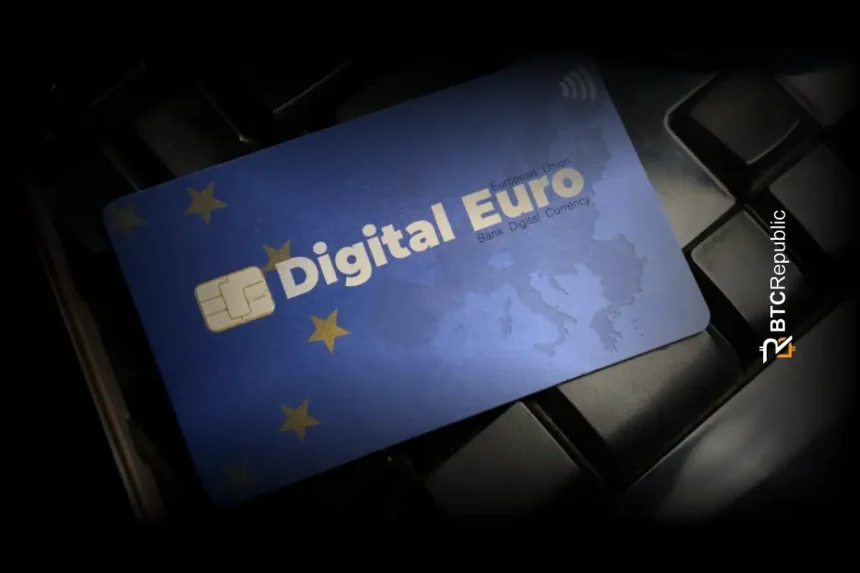The European Central Bank (ECB) is weighing whether to run the upcoming digital euro on a public blockchain such as Ethereum or Solana, according to a Friday report from the Financial Times.
This would represent a sharp departure from private blockchain frameworks, where transaction data is restricted to authorized institutions. By contrast, Ethereum and Solana operate as open, transparent networks accessible to anyone.
European Union (EU) Eyes Public Blockchains for CBDC
The European Union is reportedly exploring major public blockchain networks like Ethereum and Solana for its digital euro design.
The European Central Bank (ECB) is considering running a digital euro on a public blockchain like Ethereum rather than a private one, the Financial Times reported on Friday, citing people familiar with the matter.
Unlike a private blockchain, where data is strictly limited to authorized entities, public blockchains like Ethereum or Solana are open to everyone.
If confirmed, the EU’s exploration of public blockchains would represent a significant milestone in the digital euro’s development, given that the ECB has not yet finalized the technology framework for the project.
Public model compared to US stablecoins
The use of a public blockchain is “definitely something that [EU officials are] taking more seriously now,” one of the people involved in the digital euro discussions told the FT.
Another person said a digital euro in a private form would look “much more like what the Chinese central bank is doing than what private companies in the US are doing.”
The person specifically referred to China’s central bank digital currency (CBDC), which is deployed privately, opposed to public-run stablecoins developed by companies like Circle.
Europe has been increasingly concerned about the US stablecoin push promoted by the Trump administration and its implications for the autonomy of the European financial system.
In April, ECB executive board member Piero Cipollone called for cutting stablecoin usage in Europe by introducing a digital euro, citing adoption risks of the US dollar-pegged stablecoins, which dominate the stablecoin market at 98%.
Europe’s Stablecoin Concerns
The EU’s interest in public blockchains comes amid growing anxiety over U.S. stablecoins.
In April, ECB executive Piero Cipollone argued that stablecoins pegged to the U.S. dollar — which currently make up 98% of the global market — pose adoption and sovereignty risks.
A digital euro could act as a counterbalance, giving European citizens and businesses an alternative to U.S.-backed assets.
Unconfirmed But Significant
The ECB has not officially confirmed whether Ethereum or Solana are being considered. A request for comment from Cointelegraph went unanswered.
Still, if adopted, the decision would mark the first major central bank to launch a CBDC on a public blockchain, setting a precedent for future digital currency rollouts.
The digital euro project remains in the design stage, with the final framework yet to be determined. Market watchers will be closely following whether the EU opts for:
Ethereum → The largest smart contract network with broad institutional adoption.
Solana → Known for faster throughput and lower costs, but with past network stability concerns.
A decision in favor of public blockchains could reshape how central banks approach CBDCs, making the digital euro a potential global benchmark.










